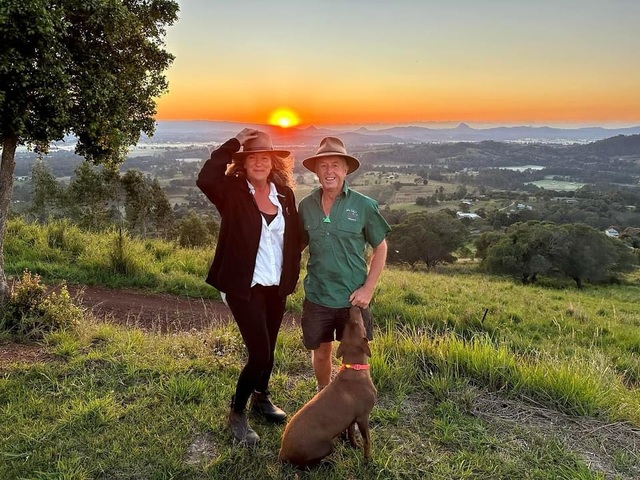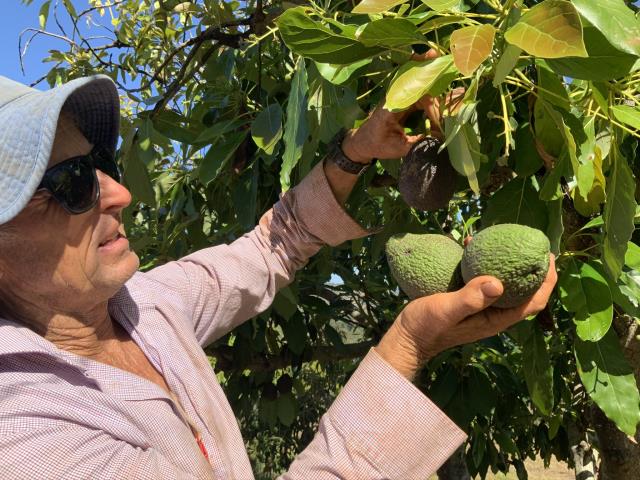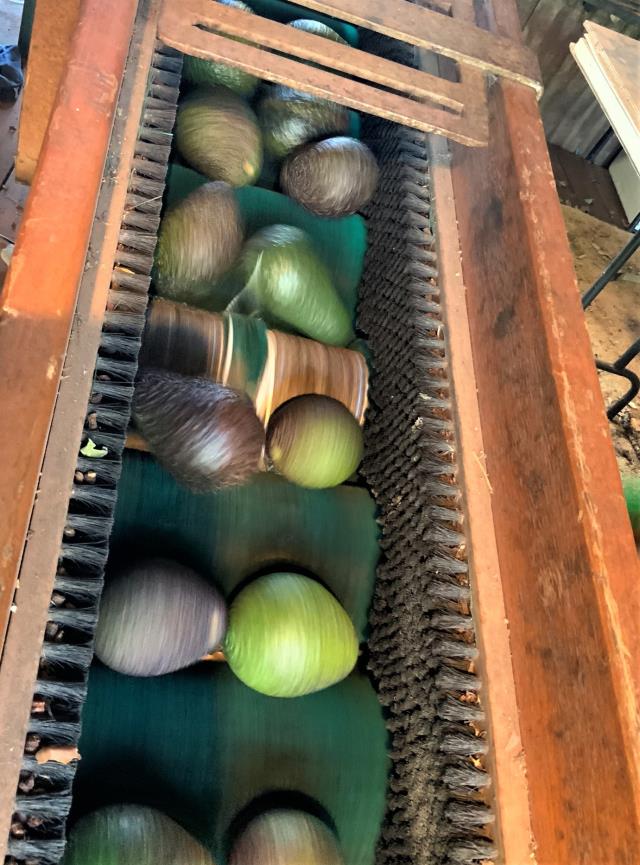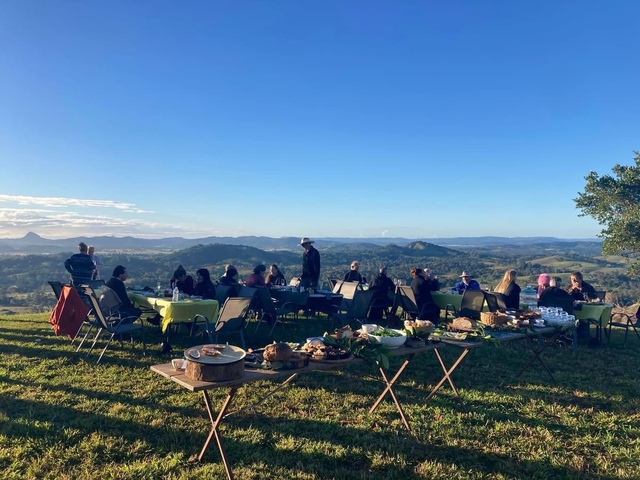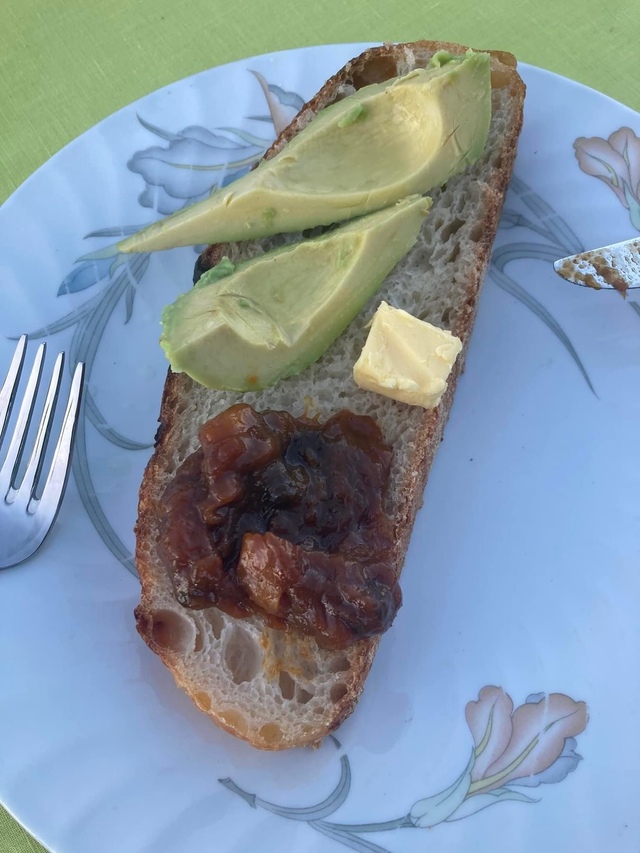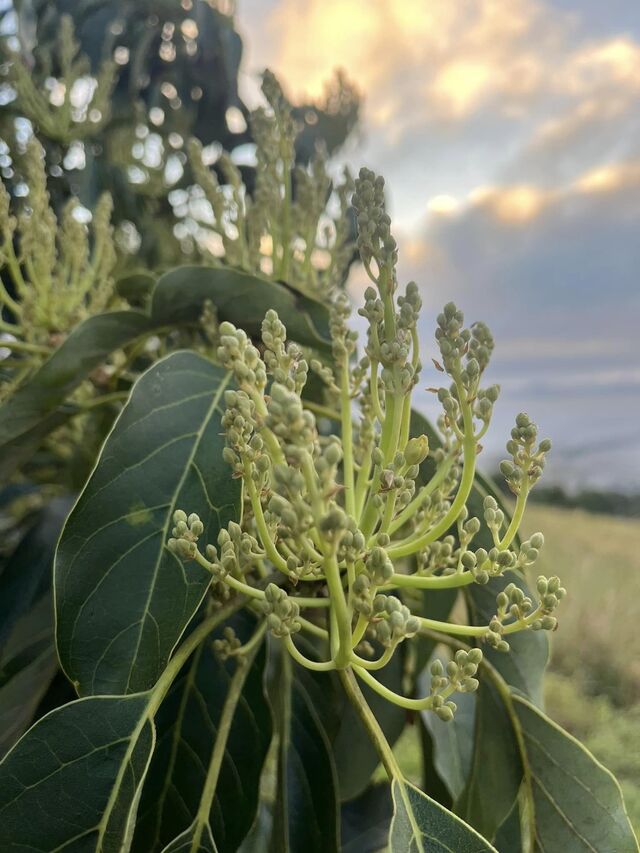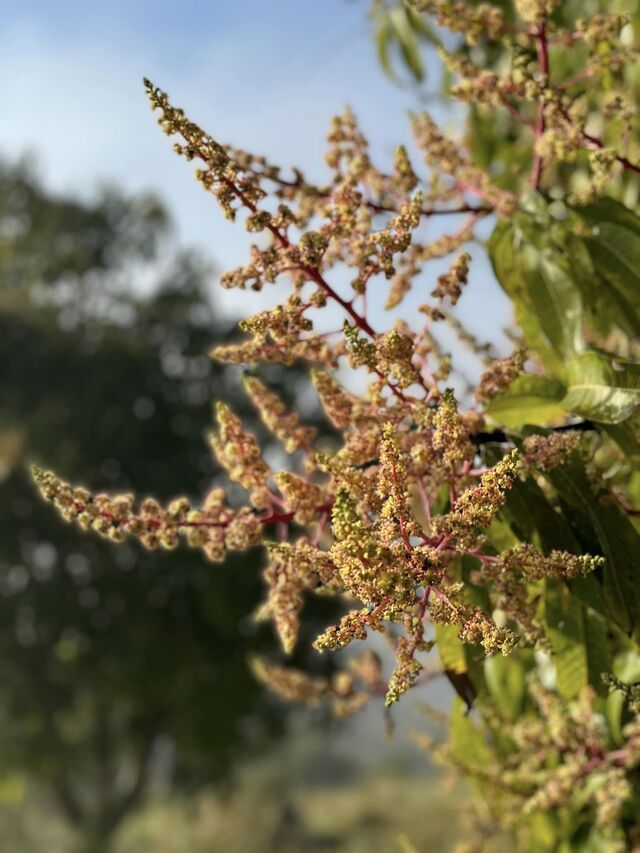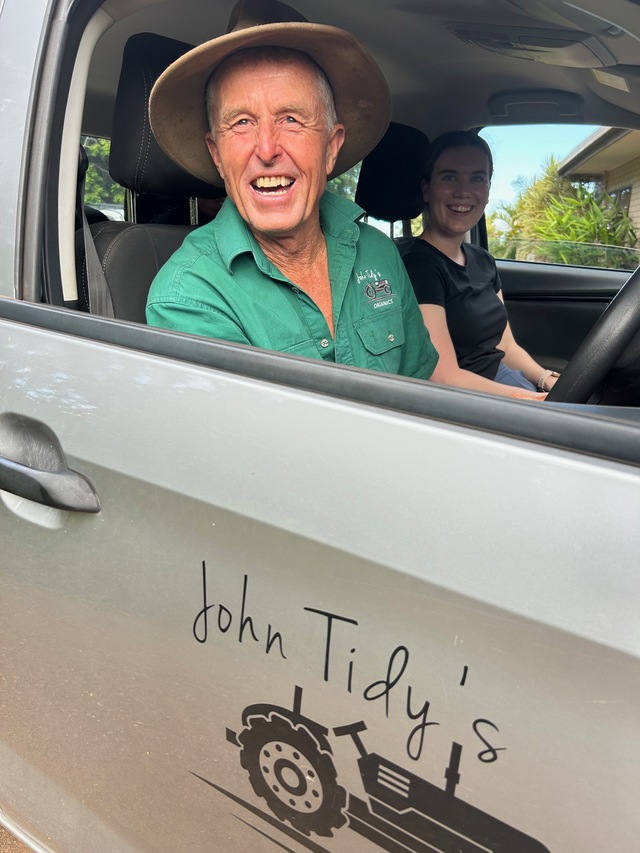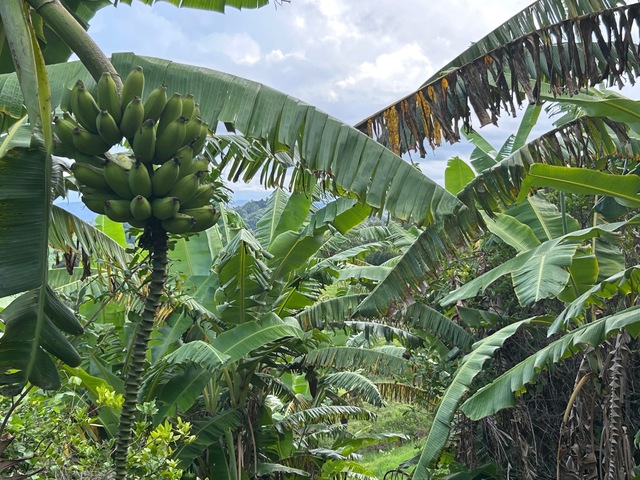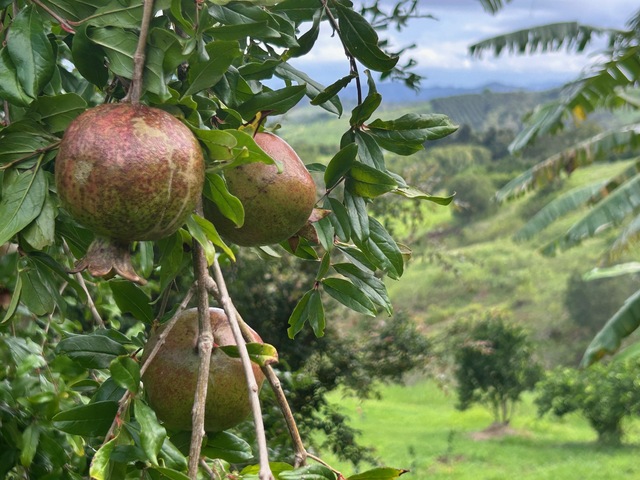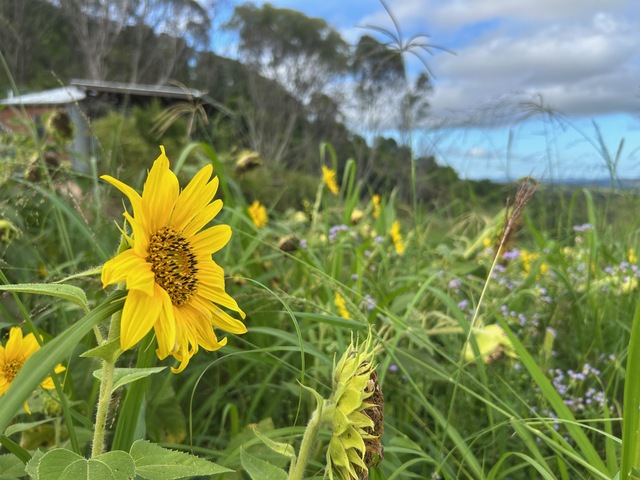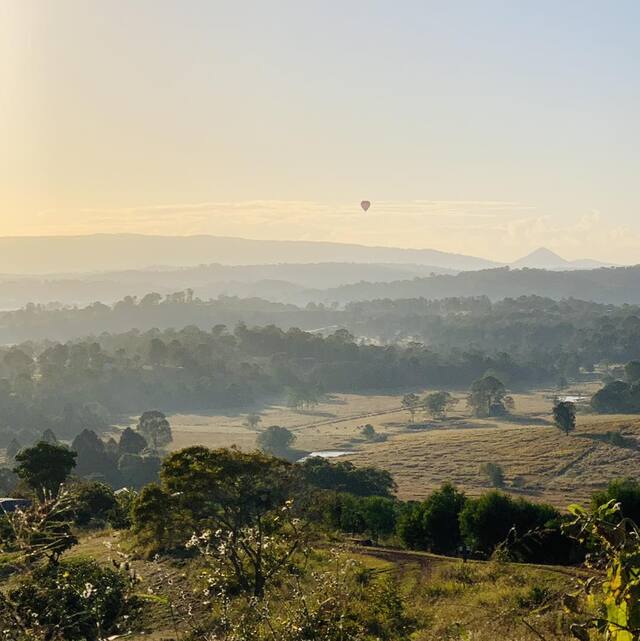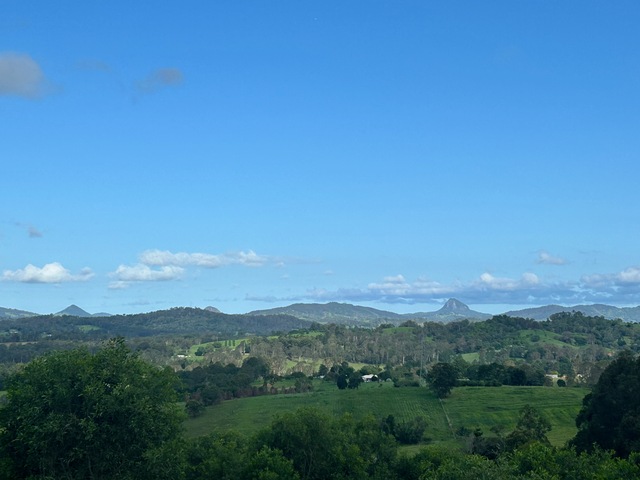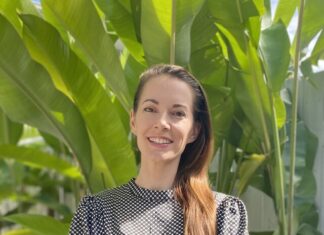When you are passionate about what you do, it shows. ERLE LEVEY revisits Avocado Tree Farm at Amamoor to see what organic farmers John and Julia Tidy have been putting their energies into.
“We have not used any chemicals on our farm since 2006. I’m passionate about leaving this place 100 times better than when I came.’’
When you passionately believe that the product you’re growing is good for the market and great for people, then it cannot help but show through in everything you do.
When you meet Amamoor organic avocado farmer John Tidy you walk away completely taken by his enthusiasm.
John, together with his wife Julia, are always willing to get their hands dirty to maintain the integrity they bring to all aspects of their business.
It is this infectious passion that sets people apart. You sense it in whatever they do.
For John and Julia that includes being passionate about the community in which they live, and proactive in highlighting what the Mary Valley has to offer.
They are also committed to organic farming.
It wasn’t until they came to the Mary Valley more than 20 years ago that John and Julia learned about avocado growing.
With a cattle and sheep background, John thought avocado growing would be a bit easier than working with stock.
Not long afterwards he developed a keen interest in healthy food and sustainable farming.
The decision to go organic was very easy, John said, after having seen the effects of chemicals on soil, on the health of people and on the the environment.
I first visited John and Julia’s place four years ago. We were in the middle of a drought and the Covid pandemic was impacting health as well as business.
How things have changed in that time. The region has seen flooding and fairly consistent rainfall.
The result is lush fields and heavy cropping of fruit in orchards.
Yet John and Julia have moved to further diversify their interests and add to the economic foundation of their orchard by encouraging people to experience rural life.
Meet Henry and Claudine – two self-contained cabins set on the upper slopes of Avocado Tree Farm.
The cabins, built and part-designed by local tradesman Gordon Maudsley, are to encourage guests to appreciate life on a regenerative, certified organic farm in the most picturesque of settings.
The Mary Valley rolls out in front of you, with the Noosa hinterland mountains Cooroora and Cooran as a backdrop.
As well as avocados on the farm there are some mangoes that are in season.
“They saw early pollination and were flowering June,’’ John said. “Often you think despite this they will not set properly.
“This time last year was so dry we only had half the normal crop.’’
John and Julia bought the property in 2003 and since then have added a further 30 acres to make 80 acres.
He likes to remind people about the value of food … and how it gets from the farm to the plate.
“It’s an amazing valley when you look at what can be grown here.
“I’ve planted new avocado trees and 400 eucalypts on the hill as part of Landcare’s philosophy.
“We have not used any chemicals on our farm since 2006. I’m passionate about leaving this place 100 times better than when I came.’’
It will be April when the avocados come into season.
John admits to making a few mistakes when he started with avocados – such as planting the trees 2m apart when they should have been 5m.
Yet you learn from that and it hasn’t dulled his passion for the level of care of the land and produce, and his belief in organics.
John is determined to present a product that is of nutritional quality and value to the market, and to the community. That means you work hard and get your hands dirty to maintain that integrity and value.
They had two varieties of avocados at the start but now have five, and they come into season at different times through the year.
“There were 300 to start with,’’ John said, “and we planted another 900 for the 80 acres.
“Fuentes are the green, shiny ones and are different from any other variety. You can tell them by the way you can twist the leaves and they have a lemon-myrtle smell.
“Then there are shepard, pinkerton, haas, then wurz. Seventy percent are haas.
“Most people finish picking in November so we finish off with wurz in December-January. That way we are benefitting from having a fruit at Christmas time.
“Supermarkets like them because of the colour and rough skin. People cannot see as many imperfections.
“One avocado can be touched up to 200 times at a supermarket. That is a bit overwhelming.
“The greatest tragedy is that supermarkets are notorious for rejecting imperfect fruit.
“There is nothing wrong with the quality, simply the look.’’
The question, John asks, is why as a nation do we not pay more respect to our farmers, our producers and the regional areas such as the Mary Valley.
“The gap between city and country has grown wider again, despite what Covid showed us. The understanding of what is needed to get food from farm to plate.
“It doesn’t make sense in regional areas where farmers and mothers are among the most important jobs. Mothers raise our children and farmers feed them.
“Service industries have been so ignored.’’
For Julia, the avocado is the most wonderful fruit. They don’t all ripen at the same time so fruit can be taken to market as needed.
“Unlike mangoes that just ripen and drop, we pick to order basically.
“They only ripen when they come off the tree. John does the picking.
“The different varieties ripen at different times. We use stock for grazing among the trees, and hire workers in to help with pruning or mulching.’’
Farm visits have been instigated to help educate on organic farming. It’s also a way to promote the Mary Valley.
Other farm-related operations nearby include Kandanga Farm Store, Forage Farms. Mary Valley Yuzu, Woollahra Homestead, Bunya Grove Produce and Farmstay, just to name a few.
John has a simple philosophy that guides him on the property as well as in life.
“Plant a tree and you will nurture it. If someone else does, you can appreciate it.
“I’ve changed the way I think about farming. I’ve moved from chemical spray and synthetic fertiliser in the pursuit of a healthier way of life … healthier soil, healthier environment, healthier people.’’
John uses biodynamic methods that focus on nurturing the soil – soil that is rich in microbes, organisms, nutrients and trace elements.
The result, he said, was robust trees more resistant to pests and disease.
Non-chemical liquid fertiliser is put through the irrigation system while mulching helps with weed control.
There is a group of fellow organic growers in the region, stretching from Cootharaba and Cooloola to Dagun and Gilldora.
John attributes Tim and Amber Scott at Kandanga Farm Store as having been the catalyst for his organic farming journey, and the way they have been encouraging growers in area.
John is still planting the hills in trees for timber, native animals and wildlife.
He is passionate about cover crops and microbes, to improve the soil health.
“That’s my passion. It’s so important to renourish the soil.’’
That brings us to their latest project – the two cabins, Henry and Claudine.
They are a consistent cash-flow for the year,’’ Julia said, “to allow us to diversify from avocados.’’
After talking about it for a long time and levelling a site, the time to act became right.
“A tiny home became available on a farm,’’ John said. “Gordon checked it and said it was right for what we needed.
“It was just a sketch in my brain then Gordon made it happen.’’
The cabins are popular with couples mainly, but a family can be accommodated.
They have been furnished in a rural, rustic style to suit the setting.
“We did not want anything to detract from the view,’’ Julie said, “… it’s 180-degrees of the Mary Valley.
“The fresh air and natural light – whether sunrise or moonrise. People can sit out at the fire pits and enjoy what’s around them.
“If people want air-conditioning and all the mod-cons then they best try somewhere else.’’
Julie, who comes from a teaching background, said The Avocado Tree Farm cabins were showing great potential with bookings.
There have been wedding parties that have stayed …. even a proposal.
The cabins provide an off-grid experience – a way to disconnect from the world and reconnect with nature.
Fitted out with sustainability in mind, the cabins feature solar panels, eco-friendly products and recycled timber.
Inside, is a stocked kitchenette and different bedroom configurations.
More than 120 species of birds call Amamoor home – from eagles soaring overhead to stubble quails tumbling over each other to feed on grass seeds around the houses.
On clear mornings you can follow the progress of hot air balloons as they float across the sky. Watch the Mary Valley Rattler steam train make its way through the landscape. Go for a walk to the top of the range for a 360-degree view.
If you do that walk, and take in the view at sunrise, you cannot help but feel inspired. It’s as if you are on top of the world.
Someone who knows John Tidy and his outlook, describes him so well: Resilient, irrepressible, kind, giving … giving of time, giving of knowledge, giving of spirit.
That’s John Tidy. He does things from a kind heart.
His message is simple: Buy local – support farmers and local businesses.

